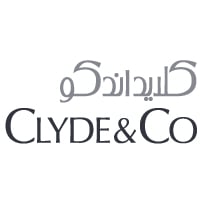

Executive Legal Advisor of HE, the President of RCRC | Royal Commission for Riyadh City (RCRC)



Abdullah Anwar Dannon
Executive Legal Advisor of HE, the President of RCRC | Royal Commission for Riyadh City (RCRC)
What are the most significant cases and transactions that you have been involved in over the past year?
The Royal Commission for Riyadh City (RCRC), chaired by the Crown Prince of Saudi Arabia, was established by a Royal Order to serve as the prominent governmental authority responsible for leading and overseeing all major governmental projects and services in Riyadh City.
In collaboration with all other government stakeholders, RCRC is mandated to develop a city-wide ambitious strategy, which will reset the government’s strategic goals concerning all vital sectors in Riyadh, including education, health, culture, youth, women, environment, entertainment, non-profit, commercial, and investment sectors, with clear KPIs and an execution plan and timeline.
RCRC owns and manages many strategic projects in Riyadh, including the King Abdulaziz Public Transport Project (Riyadh Metro and Riyadh Buses), King Salman Park, Riyadh Art, Sports Boulevard, Green Riyadh, Riyadh Innovation District, King Faisal Specialized Hospital, King Saud University, King Khalid Eye Specialized Hospital, Historical Adderiyah Development, the Diplomatic Quarter Development, and many other projects that collectively aim at enhancing the lifestyle, social environment and business competitiveness of Riyadh.
Based on your experience, what is the key to collaborating successfully with business partners?
Strategic collaborations are essential in today’s competitive business landscape. They offer a range of benefits that can significantly impact a business’s growth trajectory. By collaborating with the right partner, a company gains access to complementary skills, knowledge, and resources to fill the gaps in its capabilities.
Successful collaboration requires building trust, identifying mutual benefits, defining clear roles and responsibilities, and establishing expectations. It also involves maintaining regular communication, encouraging collaboration and innovation, and conducting periodic evaluations.
The key to successful collaboration is 1) successful communication, 2) mutual trust, and 3) shared vision.
Clear and open communication is crucial in any partnership. Establishing channels of communication that facilitate regular updates, feedback, and problem-solving is essential. Transparent communication helps align expectations and resolve potential conflicts before they escalate.
Open and direct communication with Riyadh Metro developers and operators was instrumental in helping me understand their critical concerns and effectively communicate our concerns to them as well. This significantly expedited the conclusion of the amicable settlements and established a clear timeline for project delivery.
Secondly, building mutual trust is a cornerstone of successful collaboration. Trust is established over time through consistency, reliability, and integrity. Trust can be nurtured and sustained by fulfilling commitments and being honest and transparent in your dealings. Throughout my career, I have consistently been recognized by my colleagues and business partners as faithful, honest, and trustworthy.
Moreover, having a shared vision is imperative for successful collaboration. When business partners align their goals and values, they can work towards a common purpose with passion and dedication. A shared vision provides a sense of direction, motivates both parties to overcome challenges together, and ensures that efforts are focused on achieving a mutually beneficial outcome.
What do you think are the key things to remember to motivate and manage the other members of your legal team?
As an in-house lawyer in a leadership role, it is essential to understand the principles of people management, development, and team structure.
The most critical reason people stay in their jobs is the quality of their relationship with their manager. When managing employees, no matter how busy you are, spend regular, quality time with your team individually and show a genuine interest in their career development.
Empowerment and fairness are crucial components in effectively managing and motivating a team. Empowerment involves giving individuals the authority, autonomy, and resources to take ownership of their work and make decisions. This sense of empowerment instills trust and responsibility among team members, leading to increased motivation and engagement. Empowered employees are more likely to take initiative, be innovative, and go the extra mile to achieve common goals, resulting in a more efficient and effective team dynamic.
Fairness, on the other hand, involves treating all team members equitably and justly. Fairness ensures everyone receives equal opportunities, recognition, and rewards based on their performance. When team members perceive that they are being treated fairly, they are more likely to be motivated, engaged, and committed to the team’s success. Fairness builds trust within the team, fosters a positive work environment, and creates a sense of unity and cohesion.